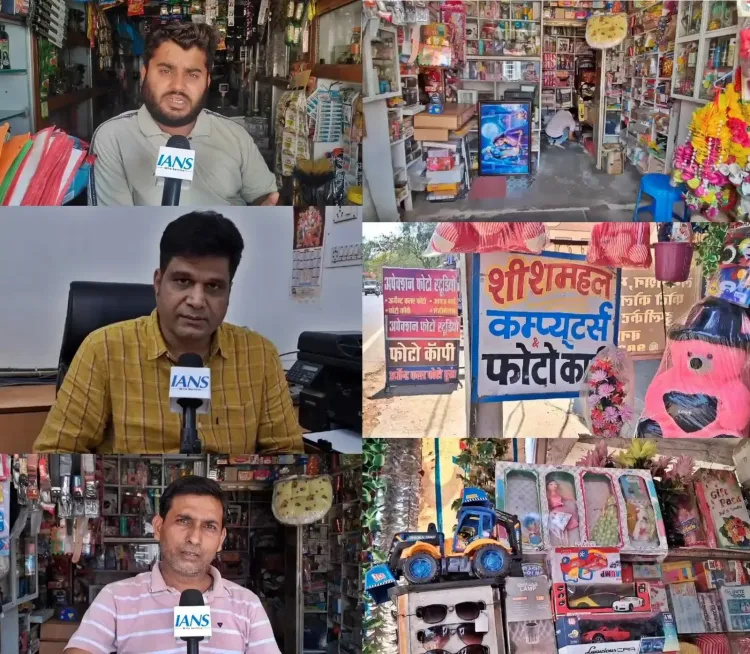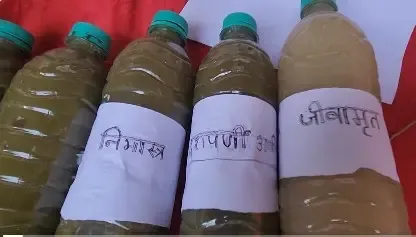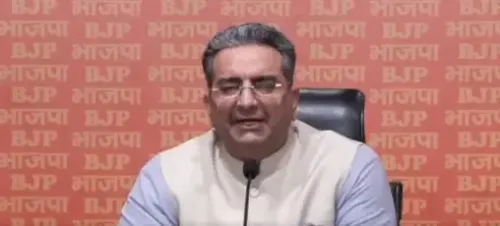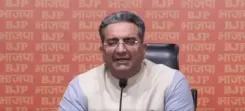Empowering Dreams: PMMY's Impact on Financial Independence in MP

Synopsis
Key Takeaways
- PMMY fosters grassroots entrepreneurship through collateral-free loans.
- Individuals like Ashutosh Pandey benefit from the scheme, achieving self-reliance.
- Ajay Jain's business flourished after securing a PMMY loan.
- The scheme offers three types of loans catering to different business stages.
- Subsidies are provided to beneficiaries every three months without requiring collateral.
Bhopal, April 8 (NationPress) As the nation marks the 10th anniversary of the Pradhan Mantri Mudra Yojana (PMMY), the inspiring narratives of numerous beneficiaries from disadvantaged backgrounds across the country are receiving significant recognition.
Initiated in 2015, the PMMY has played a crucial role in nurturing grassroots entrepreneurship by offering collateral-free loans to micro and small enterprises. This initiative has enabled individuals from lower economic backgrounds to chase their dreams of self-sufficiency, allowing them to establish and enhance their businesses.
Thanks to the PMMY, individuals such as tea vendors, salon proprietors, seamstresses, mobile repair technicians, and mechanics have obtained financial assistance to launch and grow their ventures.
Among the many success stories, residents from the Maihar and Damoh districts in Madhya Pradesh recounted how the scheme profoundly transformed their lives.
In Maihar, Ashutosh Pandey has emerged as a beacon of self-sufficiency, all thanks to the PMMY.
"I established my own enterprise with the financial support provided through this scheme. Today, I not only earn a living for myself but also contribute to my family's wellbeing," Pandey expressed to IANS.
Expressing deep appreciation towards Prime Minister Narendra Modi and the government, he mentioned: "The PM Mudra Yojana has fueled my aspirations and made me financially independent. Through my business, I aim to inspire others in society."
In a similar vein, in Damoh, Ajay Jain, a city resident, shared his motivating journey. Once facing challenges in sustaining his gift packing and toy shop, his situation improved after receiving a loan under the PMMY.
"Three months ago, I applied for a loan of Rs 5 lakh at my local bank branch. After a month of waiting for approval, the bank credited the amount to my account," Jain recounted.
With the loan, Jain was able to clear his debts and restock his shop with fresh inventory.
"Previously, my shop generated around Rs 500 to 600 daily. Now, after diversifying my stock, my daily earnings exceed Rs 1,000," he shared.
Jain highlighted the unique benefit of the PMMY: "The best aspect is that we do not need to secure any property or essential documents as collateral. The process is straightforward, and I am a living testament to its advantages."
Narendra Soni, Lead Bank Manager in Damoh, elaborated on the scheme's reach and influence. "In Damoh district alone, approximately 7,000 deserving individuals have been granted loans totaling around Rs 100 crore to set up their businesses," he stated.
He detailed the three types of loans available under PMMY: Shishu Loan: This foundational loan provides up to Rs 50,000 to assist entrepreneurs in starting their ventures. Kishore Loan: This loan, ranging from Rs 50,001 to Rs 5 lakh, is designed to support business growth beyond the initial phase. Tarun Loan: Offered in the final stage, these loans range from Rs 5 lakh to Rs 10 lakh, facilitating substantial business expansion.
"The Central government does not demand any collateral from the beneficiaries. Instead, it provides subsidies every three months based on the loan amount disbursed. Furthermore, the loans are available at the most competitive interest rates, ensuring accessibility for all," Soni added.
Since its launch, the PMMY has transcended being merely a financial initiative; it has been a driver of transformation, altering the lives of millions throughout India. In Madhya Pradesh, narratives like those of Ashutosh Pandey and Ajay Jain embody the scheme's genuine impact—enabling individuals to escape the cycle of poverty and establish sustainable livelihoods.










